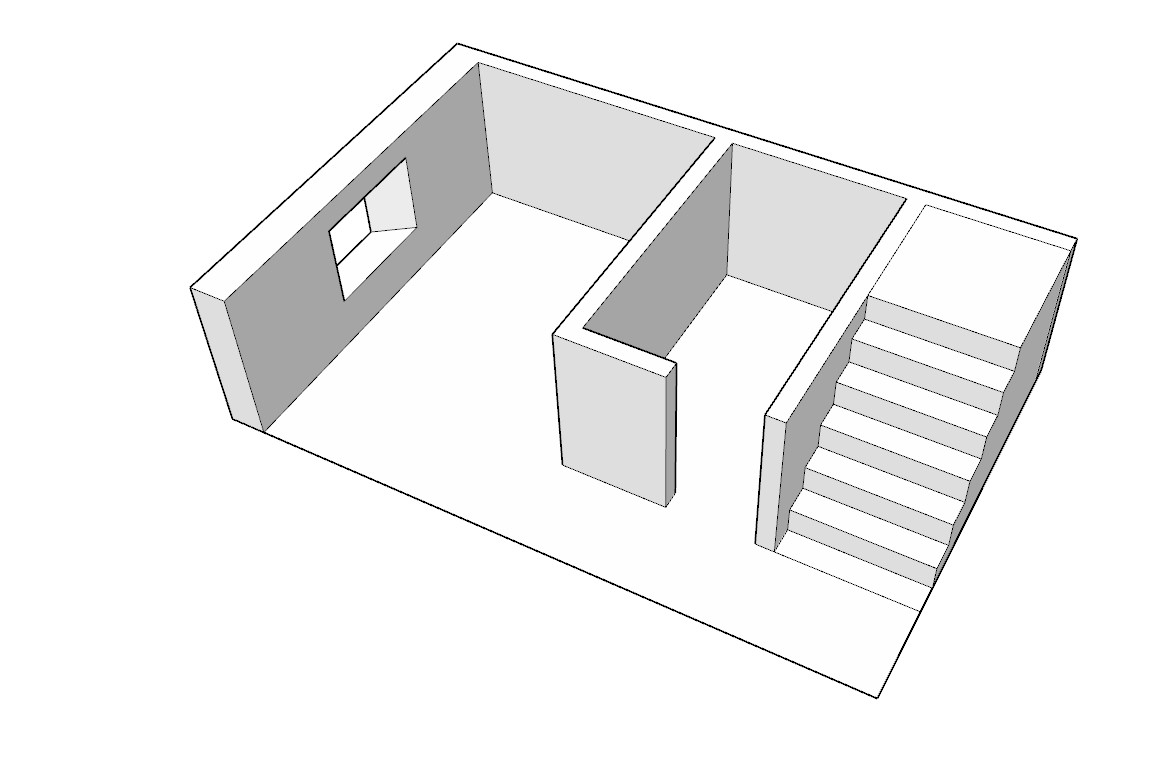The Patrol was based at the small mining village of Scremerston to the south of Berwick upon Tweed in north Northumberland. The Patrol was the closest to the coast in Northumberland, only a stones throw from the beach to the east of the OB.
| Name | Occupation | Posted from | Until |
|---|---|---|---|
| Sergeant Matthew John Robert Aitchison | Coal hewer |
Unknown | 03 Dec 1944 |
| Sergeant George Thomas Tait | Professional accounts clerk |
Unknown | Unknown |
| Private Matthew Stafford Blackett | Estate agents clerk |
Unknown | 03 Dec 1944 |
| Private James Johnson Edminson | Master butcher |
Unknown | 03 Dec 1944 |
| Private William Gibson | Miner |
Unknown | 03 Dec 1944 |
| Private James S. Nesbitt | Motor driver |
Unknown | 03 Dec 1944 |
| Private I. Ross | Farmer |
Unknown | 03 Dec 1944 |
| Private James Ross | Farmer |
Unknown | 03 Dec 1944 |
The OB was located in the cellar of the farmhouse at Inland Pastures Farm at Scremerston, the home of Auxilier James Ross. There were two access points - the normal stairs into the cellar from inside the house, and via a hatch built under a cold frame next to the house, leading directly to a small window in the cellar. It is unknown which is the entrance and which would be the escape route, though given the easy access from inside, it would suggest that the cold frame hatch could be the escape route.
The property changed hands in 1952 and the son of the new owners (born in 1960) cannot remember a time when the external access was open, so it was presumably filled in pre-1964 and possibly even before his parents bought the property.
There is little evidence of either the cellar's use as an OB or of the external access. A half buried lintel is visible outside behind where the cold frame was, with a bracket in the stone work to the right of the lintel. It appears that there was a corresponding bracket on the left. They possibly held a bar to allow the base of the cold frame to be hinged.
Inside the OB it is quite cramped and as shown on the drawing comprises a larger chamber with a smaller room off to one side. During WWII the farm had no inside toilet, and so as with normal OBs, an Elsan or such would be needed. There is a well in the floor of the cellar, it is not very deep, but it still has water in it as of 2024.
There is no clear evidence left of any fixtures or fittings from its use as an OB. The ceiling has been removed at some point in the past and walls are either bare stone or whitewash. There are a few areas when there have clearly been brackets or wood attached, but no indication of what they could have held. As there is no evidence to see please do not trespass to try to access.
Scremerston Patrol
One of the main targets was the East Coast main railway line which runs very close to the OB site. Like others in this Group, the A1 main England/Scotland road, which ran through the village, will also have been looked at.
The Port of Berwick, mainly the Tweedmouth and Spittal side of the Tweed, an important coal transport centre at the time as well as the Cocklawburn beach (a possible landing ground), would also have been targeted by the Patrol.
Road bridges over the Tweed will have been useful targets to destroy to slow up the enemy advance.
The Patrol went to Cupar in Fife and Belford with the Army as well as locally around the farm in which the OB was located. The Patrol also attended Otterburn ranges with the Army.
It is thought that one of the Patrol (possibly the Sergeant) also went to Coleshill House.
The Patrol was equipped with the Mark 2 Auxiliary Unit kit, a .22 sniper rifle with sights as well as at least one Sten gun. It also had a mixture of hand grenades.
The Patrol were the first to be formed in Northumberland late in 1940 or early 1941.
The Patrol was made up of farmers and miners. The miners were chosen for their knowledge of use of explosives. The Patrol stored their explosives in the Scremerston Colliery store under the cover of Home Guard use.
The Cat Inn (now Island View) was the meeting place for the Patrol, probably because it was close to Lieutenant. J.W.L. Carmichael's farm.
Sergeant George Tait moved to the Halidon Hill Patrol later in the war after a bit of a resuffle of the Group.
Two members of the Patrol on the "official" list from the National Archives may well have been in the Scremerston or Halidon Hill Patrol. William Crow and William Turnbull both farmed at the New East Farm which is north of Berwick though there may have been another with the same name nearer the Patrol OB during WW2.
The National Archives in Kew ref WO199/3388
Hancock data held at B.R.A
1939 Register
David Constantine
Local press
Ex members story
Simon Cadzow

